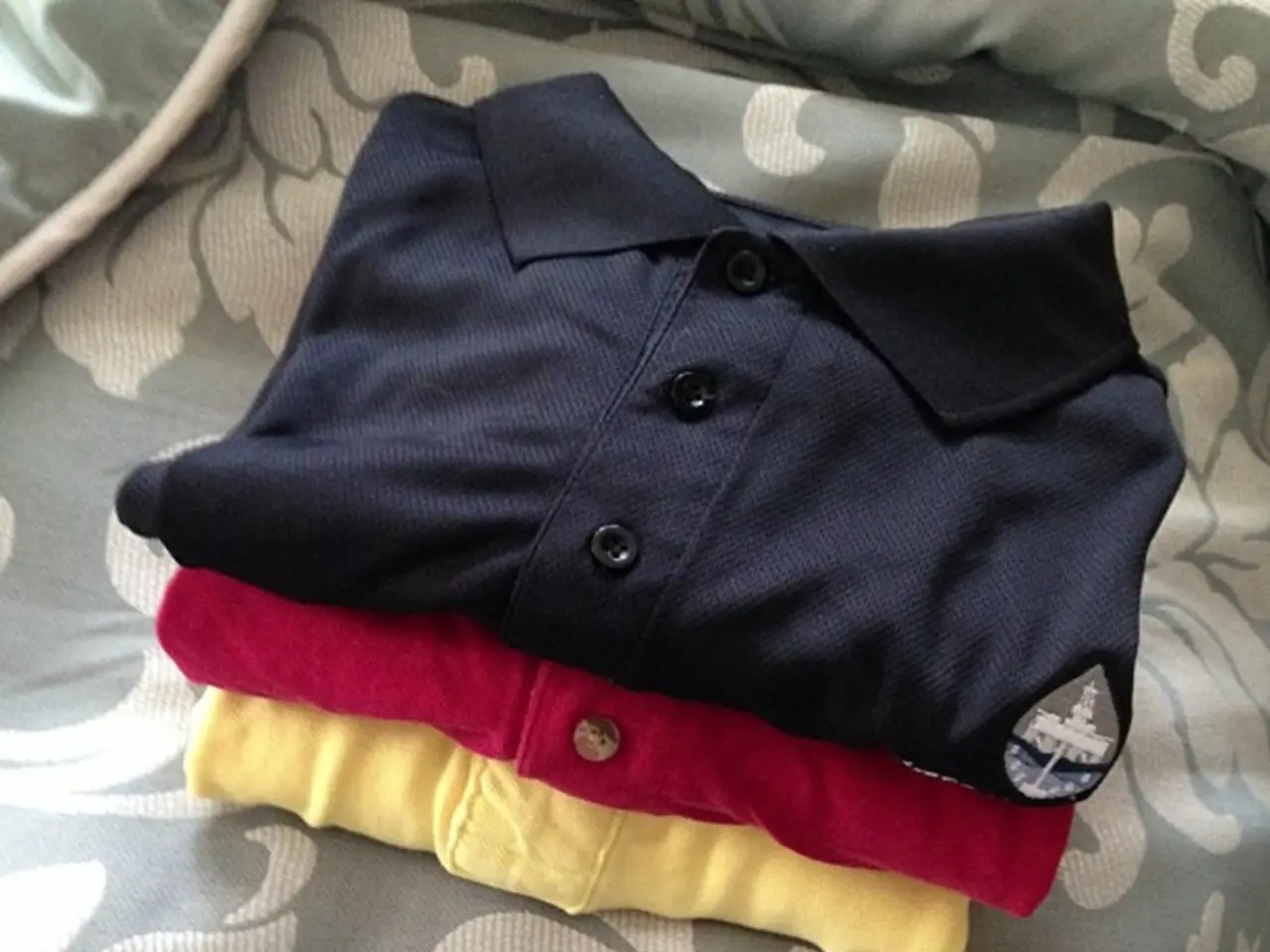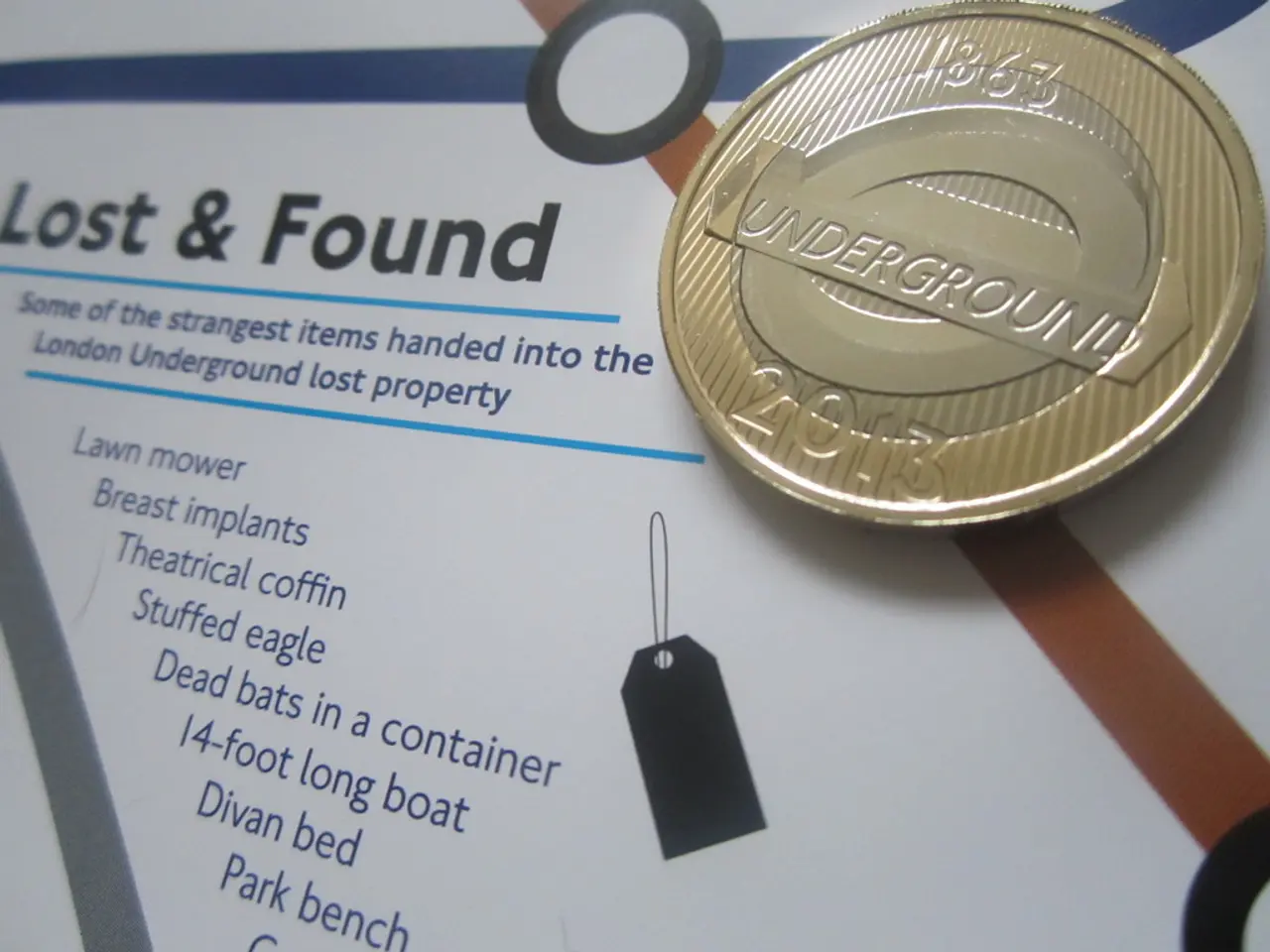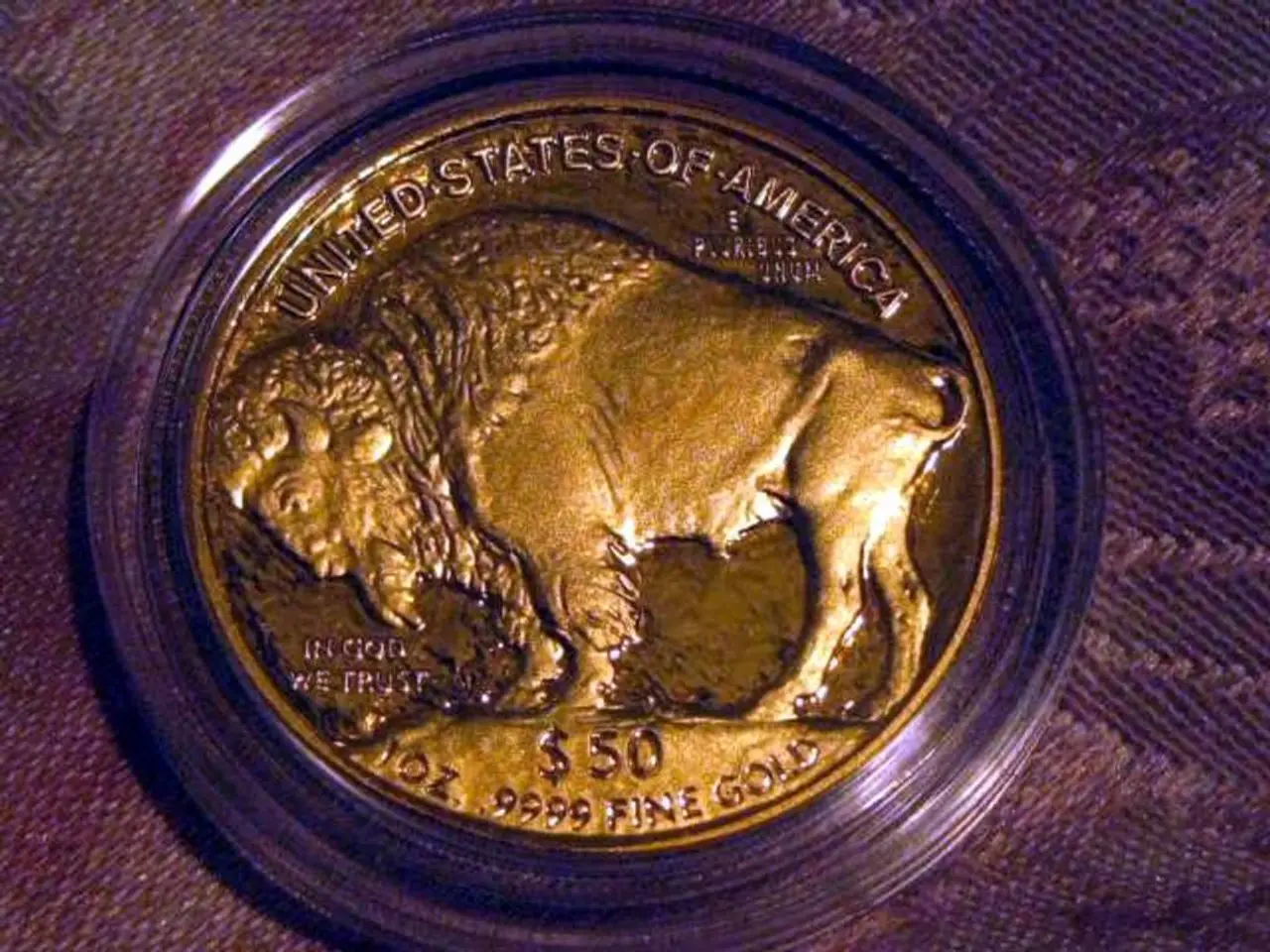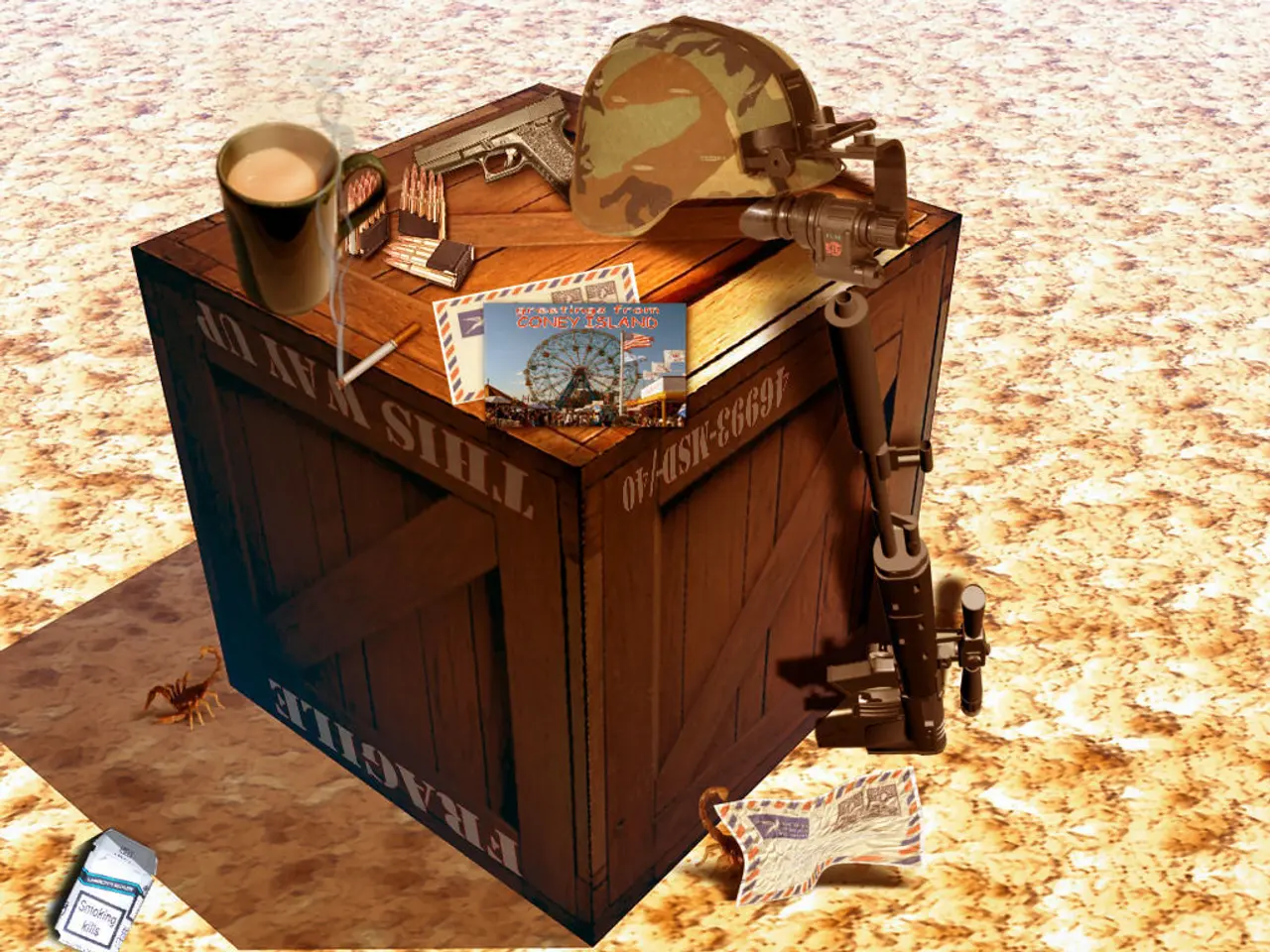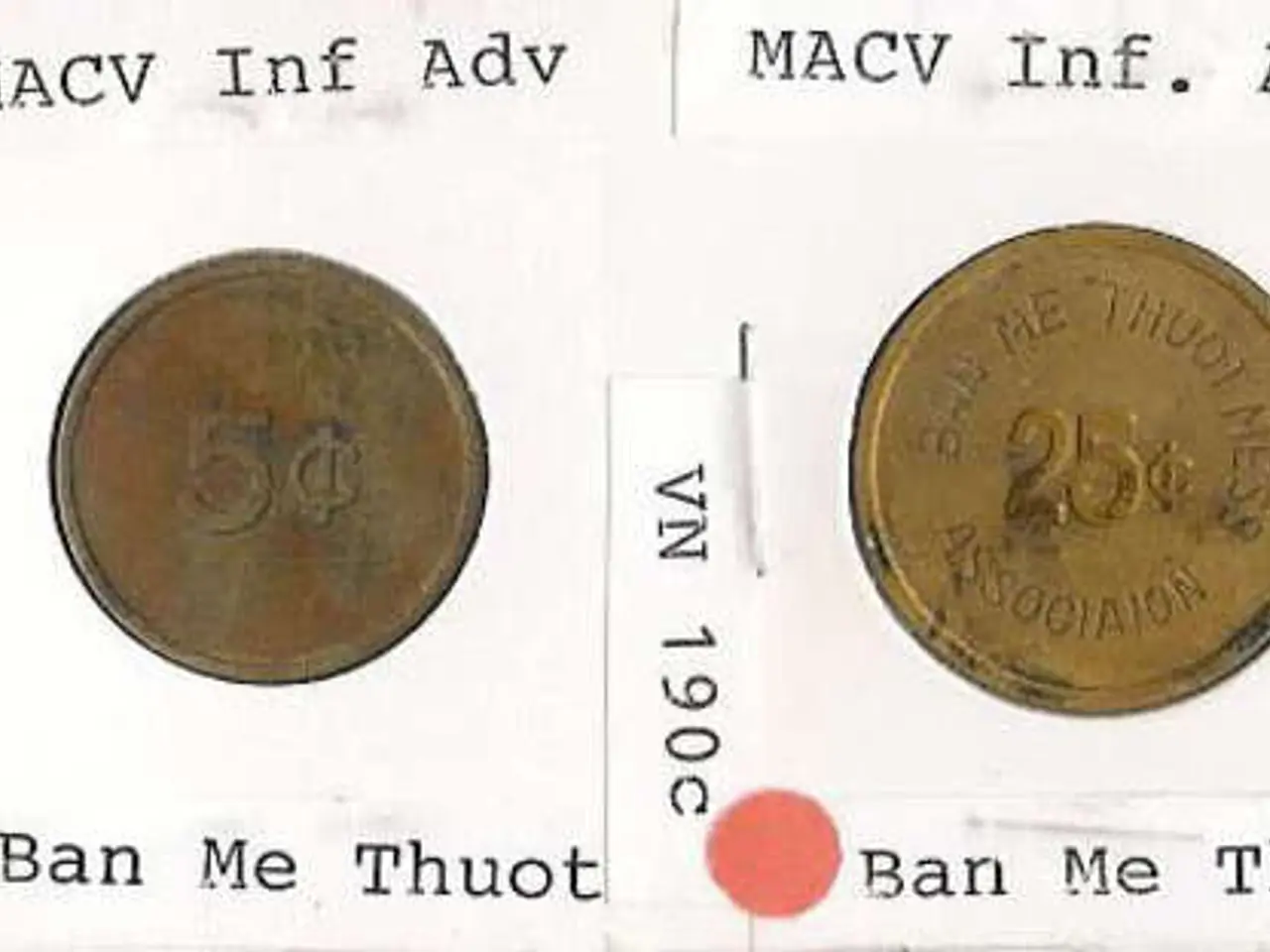Bangladeshi garment industry braces for competition despite reduced US tariffs
Bangladesh's garment industry, a major contributor to the country's economy, has received a significant boost with the US reducing tariffs on its exports. The US tariff on Bangladesh's garments has been reduced from 35% to 20%, providing some relief to the industry.
However, the overall tariff rate on garment exports from Bangladesh to the United States remains at 36.5 percent. This rate includes a newly imposed 20% reciprocal tariff plus the pre-existing average US import duty of about 16.5 percent.
The US finalized and applied a 20% reciprocal tariff on Bangladeshi garment exports effective August 7, 2025, which was a reduction from the initially proposed 35–50% range after negotiations. This tariff is added to the existing average import duty of roughly 16.5 percent, leading to an effective tariff rate (ETR) of 36.5 percent on Bangladeshi garment products exported to the US.
This effective rate puts Bangladesh in a competitive positioning relative to key competitors. Vietnam also faces a 36.5 percent ETR, while Pakistan faces about 19–20 percent and India faces a much higher effective rate (~66.5 percent after reciprocal tariffs). China faces about 55 percent.
Despite the effective tariff increase, this tariff regime is considered favorable compared to other countries facing higher tariffs or more uncertainty. Bangladesh's significant share (around 9%) in the $85 billion US apparel market is preserved.
Industry leaders and government officials in Bangladesh have welcomed the decision to reduce US tariffs on its garments. Abdul Wadud, president of a Bangladesh garment exporting company, stated that while the reduced tariff provides some relief, the overall tariffs will still be higher than before, making Bangladeshi garments more expensive for US buyers.
Wadud's company, Winter Group, exports knitwear and jumpers globally, making the US market a crucial export destination. The reduced tariff is considered crucial for preserving Bangladesh's competitive edge in its largest export market, the US.
Interim Prime Minister Muhammad Yunus described the decision as a "decisive diplomatic victory". The reduced tariff is effective starting from this month.
The reduced tariffs on Bangladesh's garment exports by the US have provided a notable boost to the country's industry and business, given the sector's significant contribution to the economy. However, the overall Effective Tariff Rate (ETR) on these products remains high at 36.5 percent, ensuring Bangladeshi garments remain expensive for US buyers despite the relief, as indicated by Abdul Wadud, president of a Bangladesh garment exporting company.
